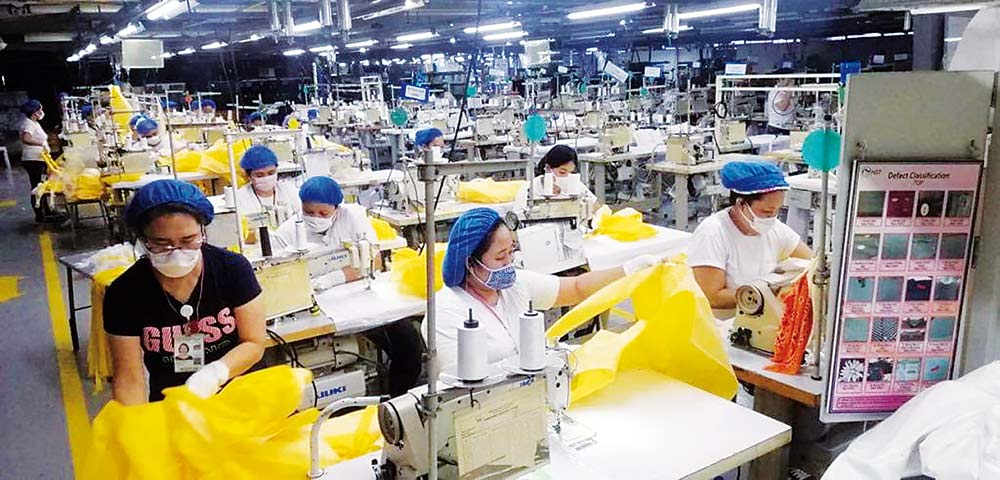Government preference for imported personal protective equipment (PPE) has resulted to a significant underutilization of factories and has left hanging an additional investment, particularly for the production of raw materials used in PPE manufacturing, according to Marites Agoncillo, executive director of the Confederation of Wearable Exporters of the Philippines (CONWEP).
This as Secretary Ramon Lopez of the Department of Trade and Industry (DTI) said in an interview by Radyo 5 yesterday about 6,000 jobs could have been saved if procurement of PPEs from local manufacturers was sustained.
Agoncillo said in a separate interview the Confederation of Philippine Manufacturers of PPE (CPMP) , a member-company of CONWEP, has so far only supplied P660 million worth of PPEs – medical-grade coveralls and faces masks – to the government in November and December 2020.
This represents just 40 percent of the $35 million invested by garments firms in repurposing their garments factories into PPE lines and just 14 percent of the total P4.8 billion procured by the government in 2020.
Agoncillo said the group was able to supply a “portion” of the government procurement starting only in the last quarter of 2020 even if repurposing started in May.
She added CPMP members were not part of the bidding process in June and July 2020.
Lopez expressed support to CPMP’s call for the passage of a law, including the amendment of the Government Procurement Law, that would mandate the procurement by government of essential products from local manufacturers.
Republic Act 1984 does not specify preference to domestic manufacturers in government procurement.
“We cannot do anything about this,” Lopez said adding the current policy of bidding goes for the lowest price with the same specifications, alluding that locally-made PPEs cannot compete with imported ones, especially those come from China, on price.
When asked how much the price difference between imports and locally-produced PPEs, Agoncillo said “I am not privy to the price point difference.”
At Wednesday’s hearing at the Senate, CPMP asked Congress to prioritize the pending bills filed middle of last year aiming to strengthen the rules of engagement in supporting the development of local PPE industry in the country. There were four bills filed in the Senate and two versions of the same were filed in the lower house around the second and third quarters of 2020.
“We need a law similar to those in Thailand , Japan and the US which focused on developing their respective critical PPE manufacturing industry,” Agoncillo said.
Seven companies put in $35 million for the production of PPEs and face masks last year in response to call by government for the supply of these critical items in the fight against the new coronavirus disease 2019.
Companies were to invest an additional $36 million for PPE manufacturing, including the production of raw materials like non-woven polypropylene medical grade fabric needed for PPE for N88 masks and fabric for medical-grade PPE.
Agoncillo said 25,400 workers were displaced by the pandemic and the repurposing of three firms alone could have saved 3,500 jobs
Lopez said from zero, the country can now produce 3 million coveralls per month. It has also increased its capacity to manufacture face masks to 60 million per month from 2 million.




